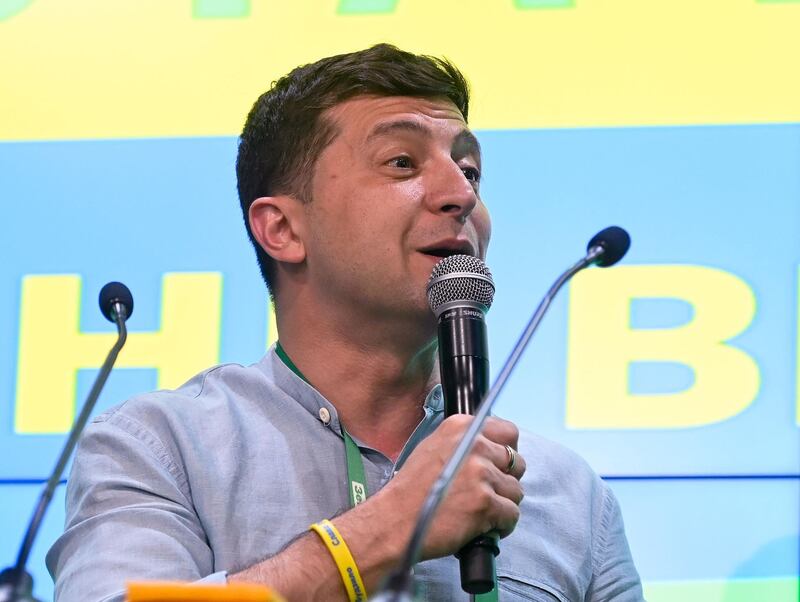No one watching Ukrainian politics anticipated the commanding share of votes raked in on Sunday by the political party aligned with Ukrainian President Volodymyr Zelenskiy, a recent arrival on the country’s political stage.
With the last of the votes trickling in on Monday afternoon, the Servant of the People Party looked set to take an overall majority of the Ukrainian parliament or Rada, a victory unprecedented in Ukraine or the former Soviet Union.
Mr Zelenskiy, a former comedian turned politician who raced to shock presidential victory over incumbent Petro Poroshenko in April, is set to cement his hold on Ukrainian politics with his party estimating that it will win 246-249 seats out of 424 seats.
The question analysts are asking now is whether the newly elected political novices can follow through on the most pressing issues plaguing Ukraine: a faltering economy, rampant corruption and a war in the east of the country with separatists backed by Russia.
Leonid Bershidsky, a Russian columnist at Bloomberg, said the results represented an important opportunity to enact much-needed reforms in the economy and the press, an opportunity not to be wasted.
“Ukraine can still serve as an example to other post-Soviet countries and lead them in purging out corruption, in economic deregulation and in creating truly free media,” he said. “This election result is another big chance; Ukraine keeps getting them and wasting too many of them.”
The Kremlin has been watching closely at Mr Zelenskiy’s inaugural months at the helm. Tensions between the neighbours once seen as close allies have plummeted since Moscow annexed the Crimean peninsula from Ukraine in early 2014 following a series of street protests that saw the ousting of Kremlin-friendly president, Viktor Yanukovych.
Mr Zelenskiy has promised to bring about an end to the conflict in Donbass between Kiev and Kremlin-backed separatists which has claimed some 13,000 lives.
Vladimir Zhirinovsky, the firebrand leader of the Liberal Democratic Party, often described by political analysts and neither liberal nor democratic was quick to lash out as Mr Zelenskiy’s party looked set for a clean sweep.
“Russia should not recognise the parliamentary elections that took place yesterday in Ukraine,” he wrote on Twitter. “Our observers were not allowed there. With this step, Kiev tried to insult Russia. And in response, we will not recognise the elections!”
Dmitry Trenin, the director in Moscow of the Carnegie Center think tank, says the results of the elections show that Ukraine might not be too worried about what Russia thinks of the results.
Mr Trenin said that Kiev and Moscow should focus on making progress on a permanent ceasefire in the east of the country, a prisoner exchange and reaffirm the provisions made in the Minsk peace agreement from 2015, which include the removal of heavy arms and an amnesty for those involved in fighting.
“Ukrainian parliamentary elections have demonstrated that the bulk of the population continues to move away from Russia,” Mr Trenin wrote on Twitter. “One should take note of this calmly, drop illusions and focus on what’s doable in the short term.”







